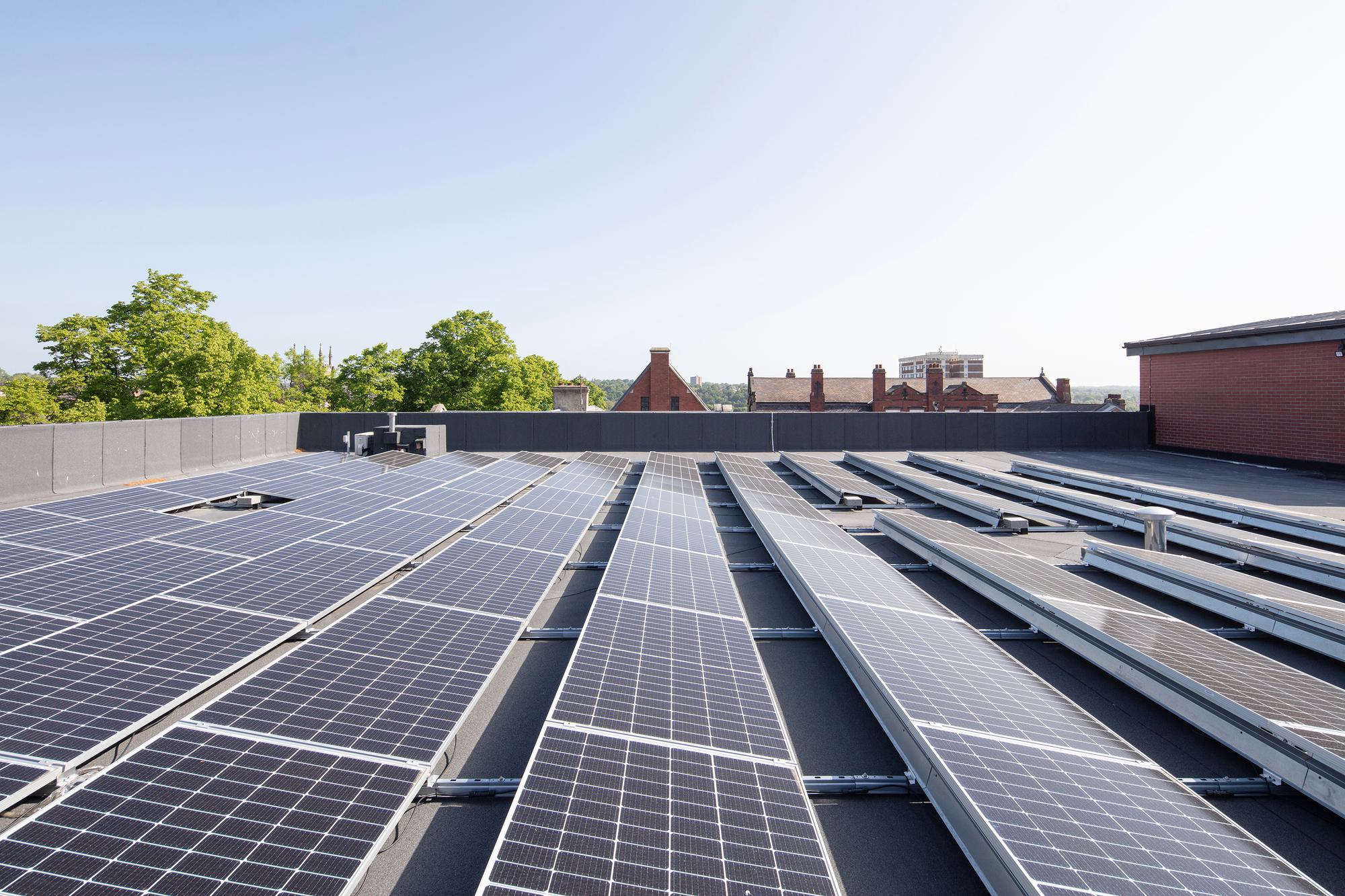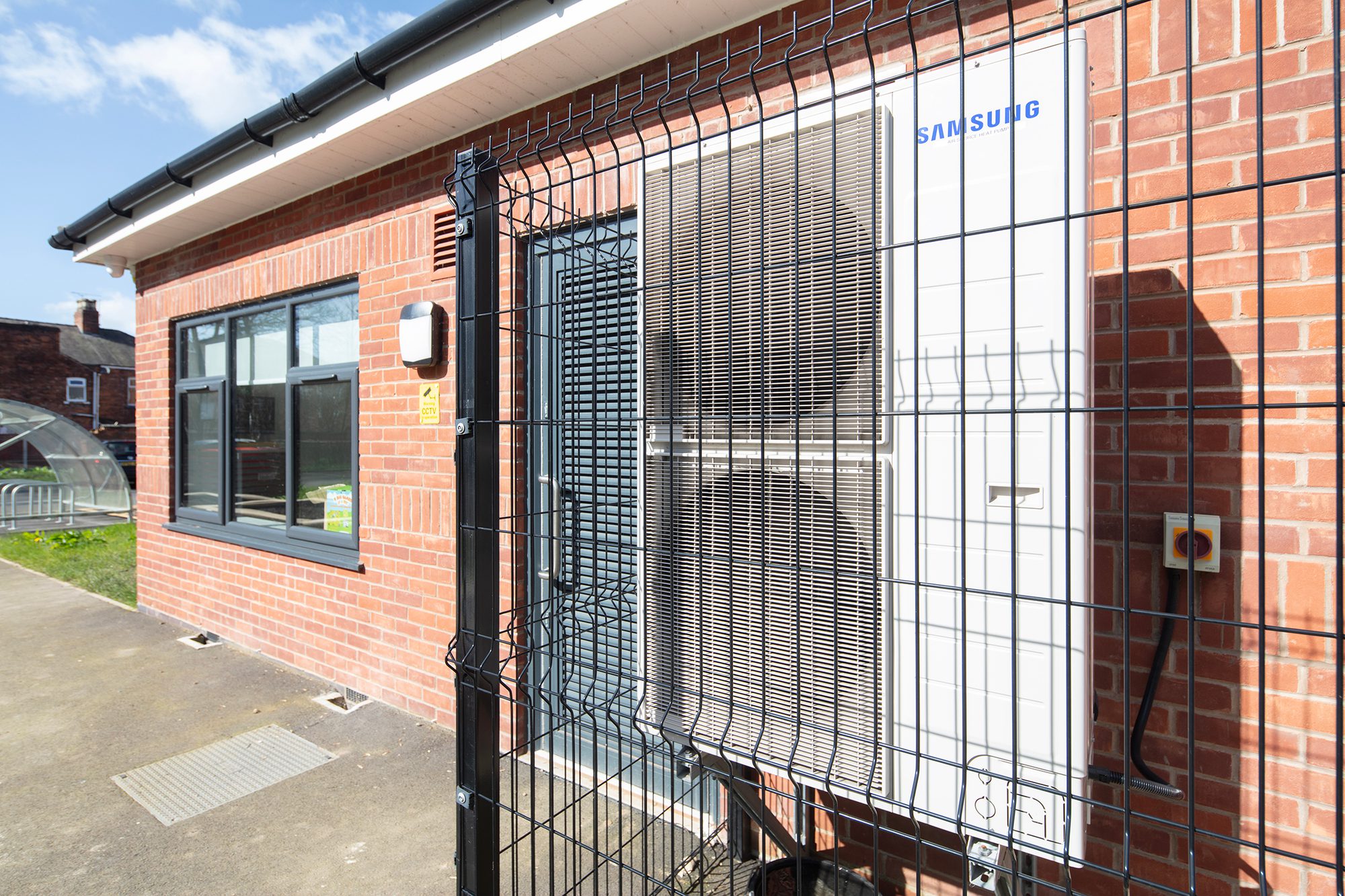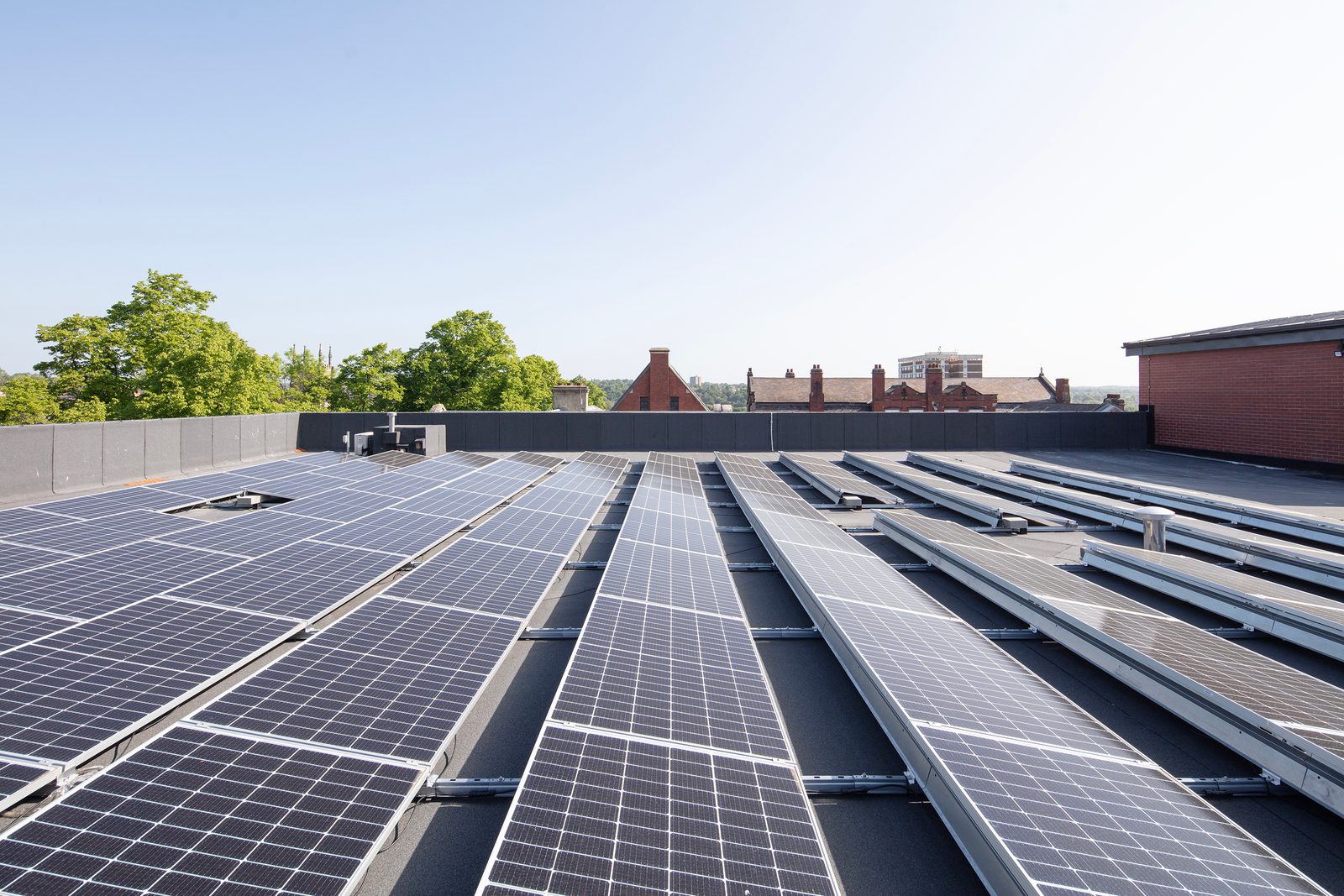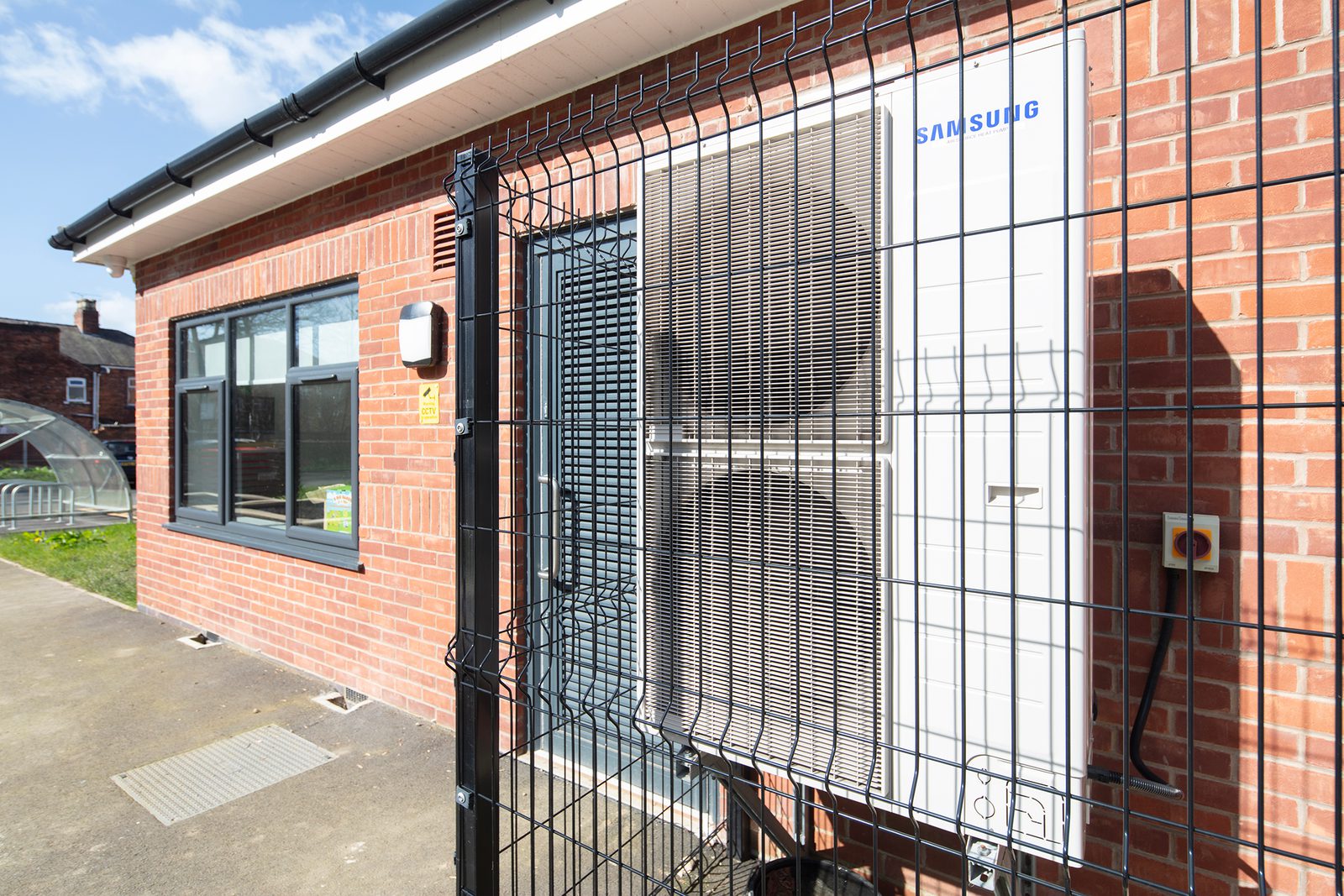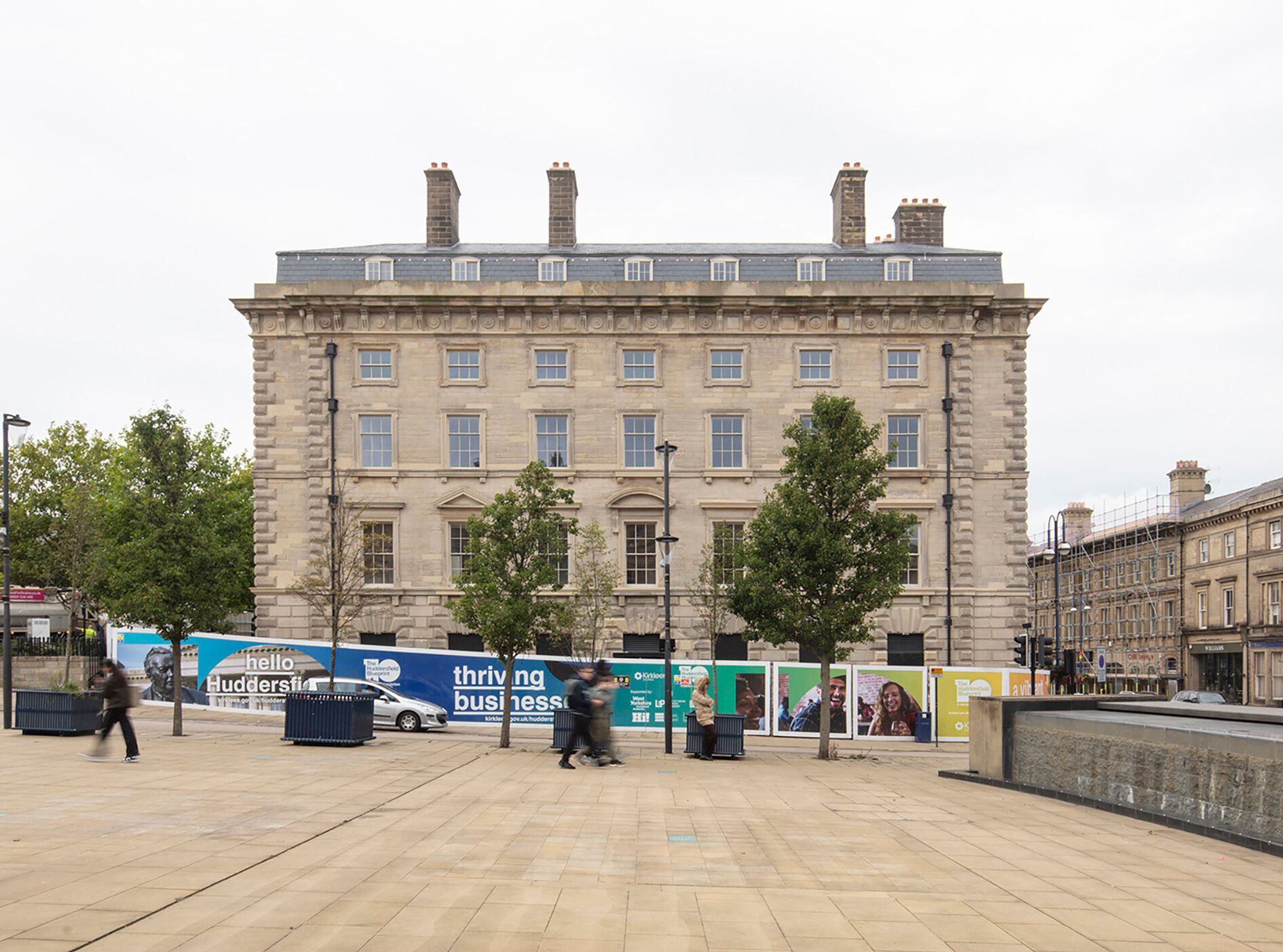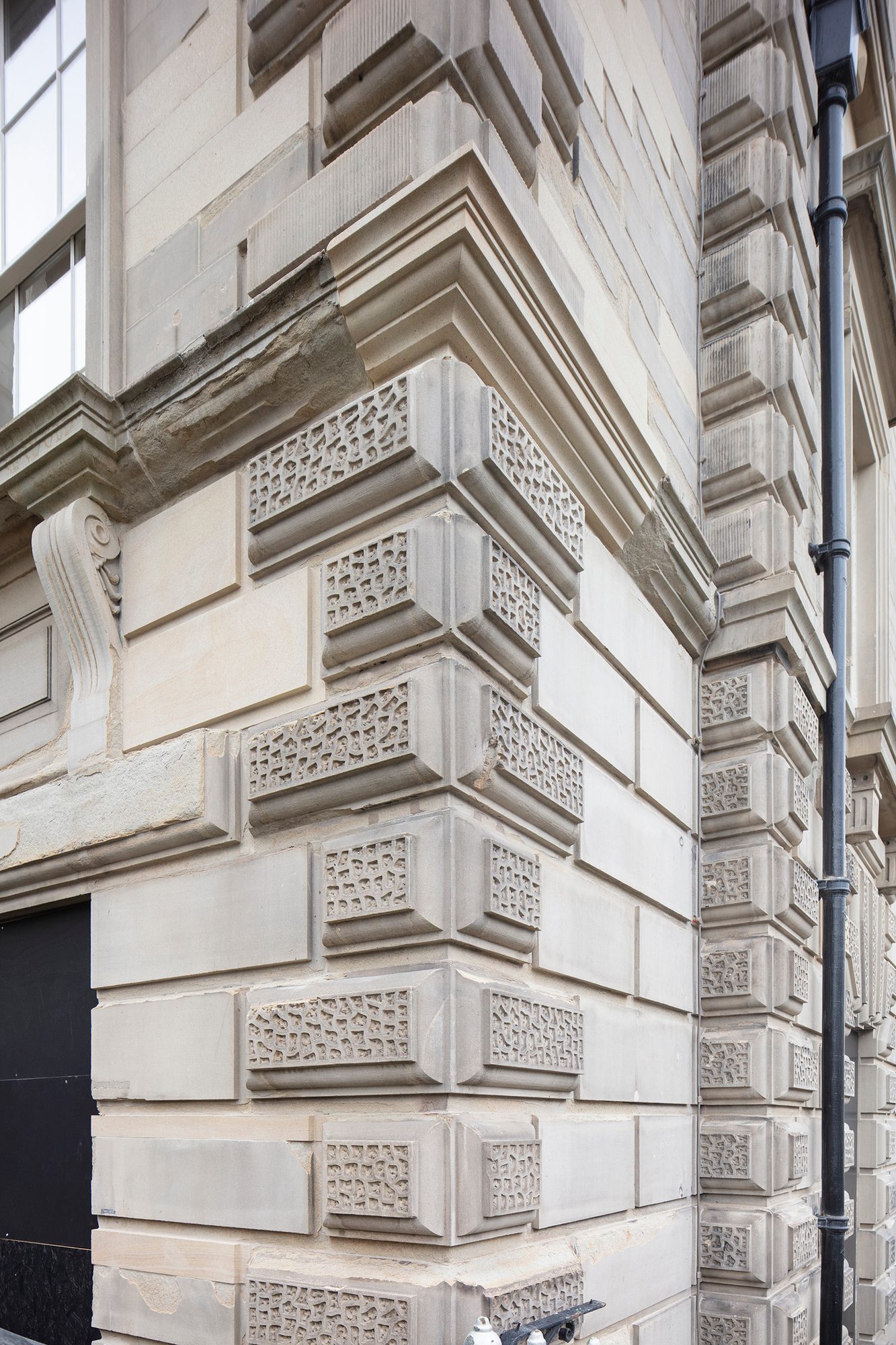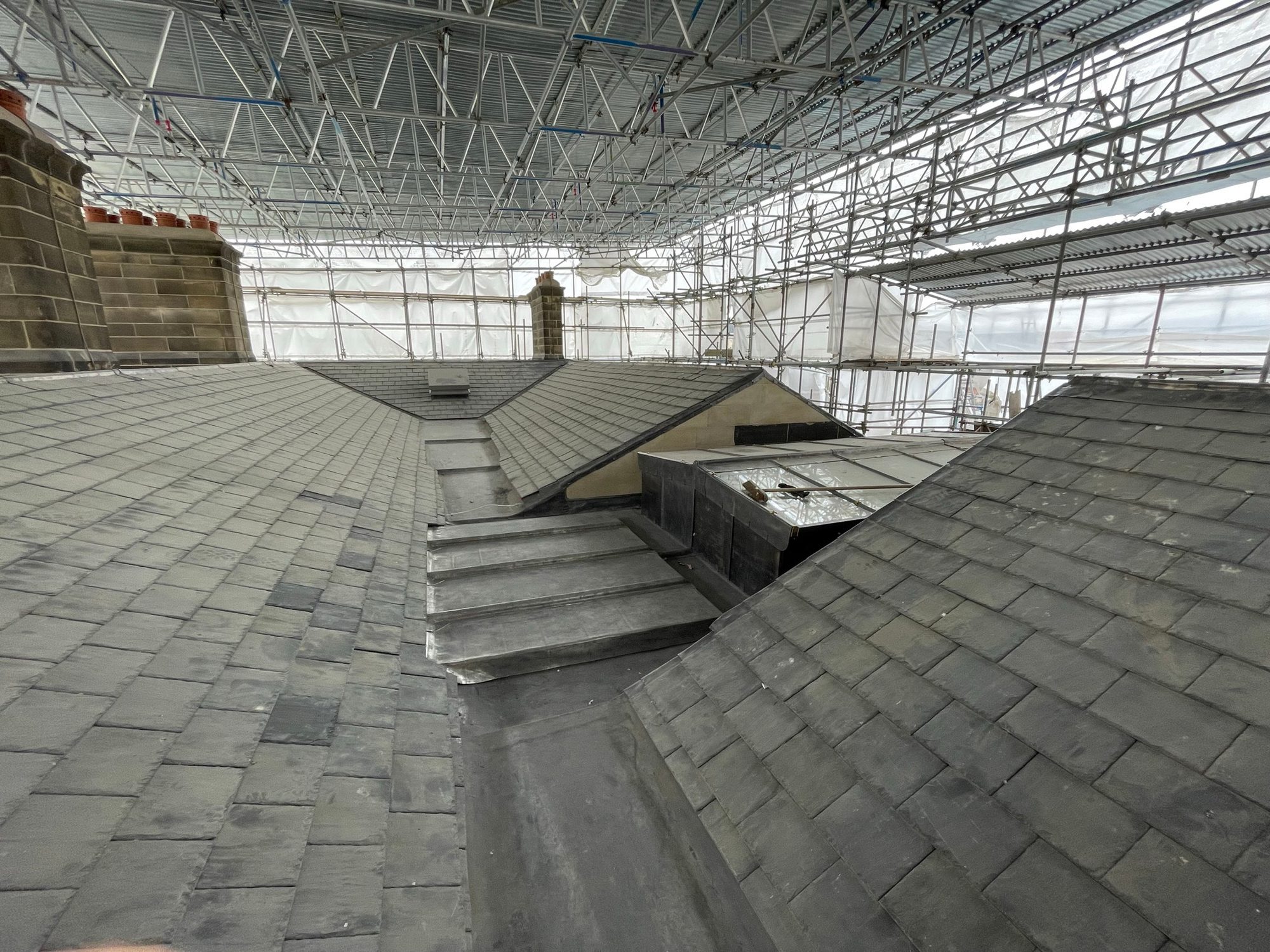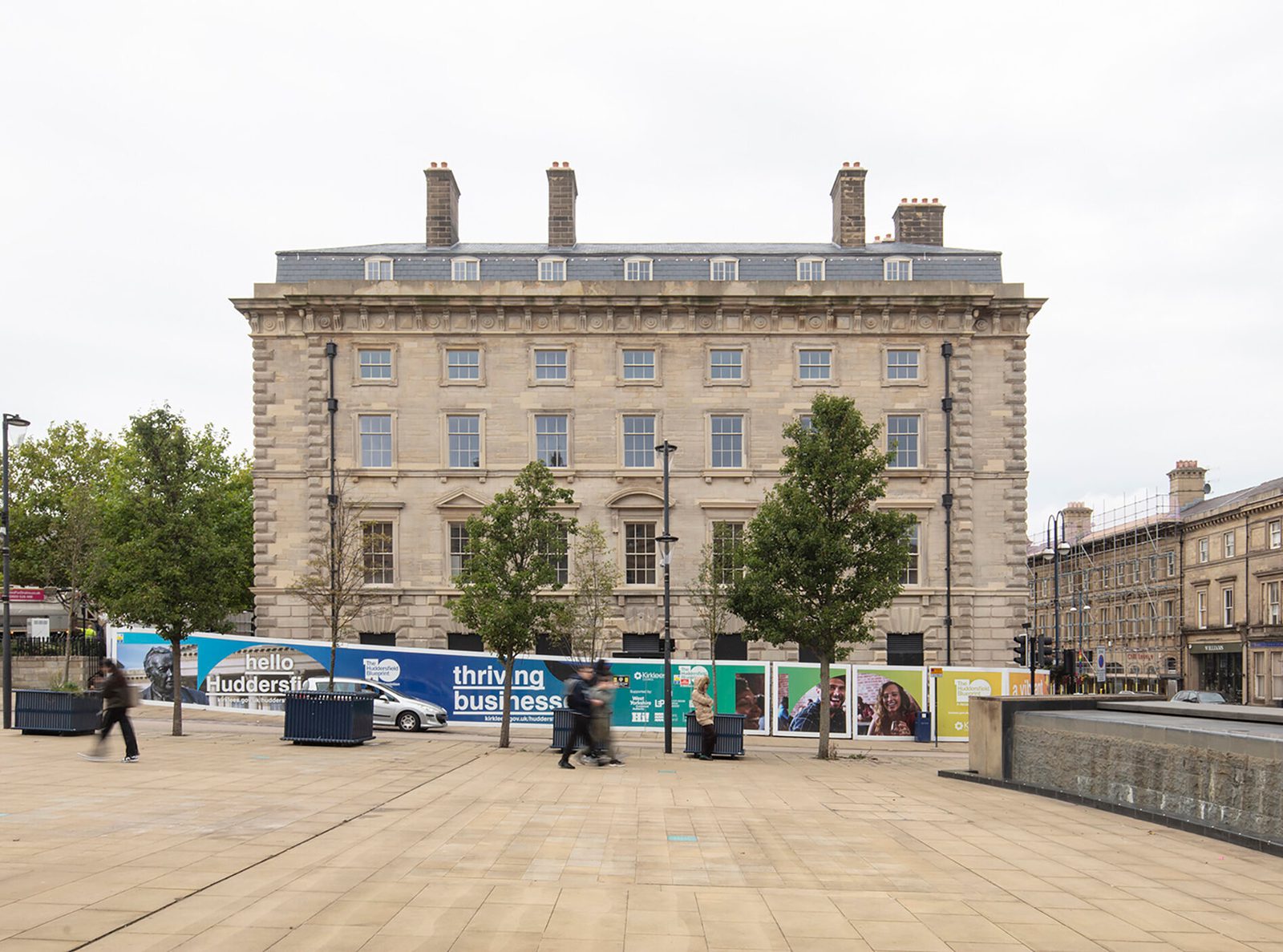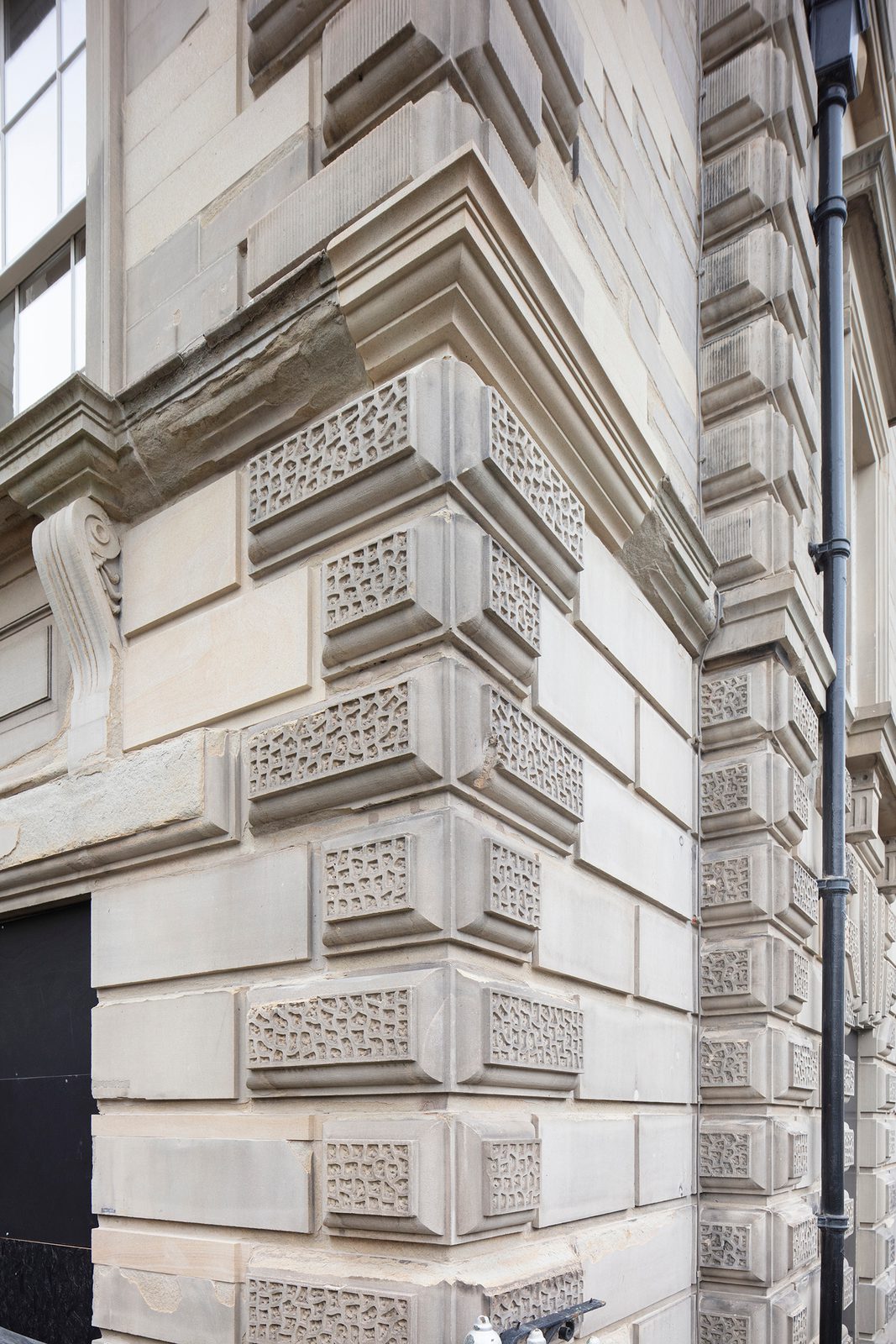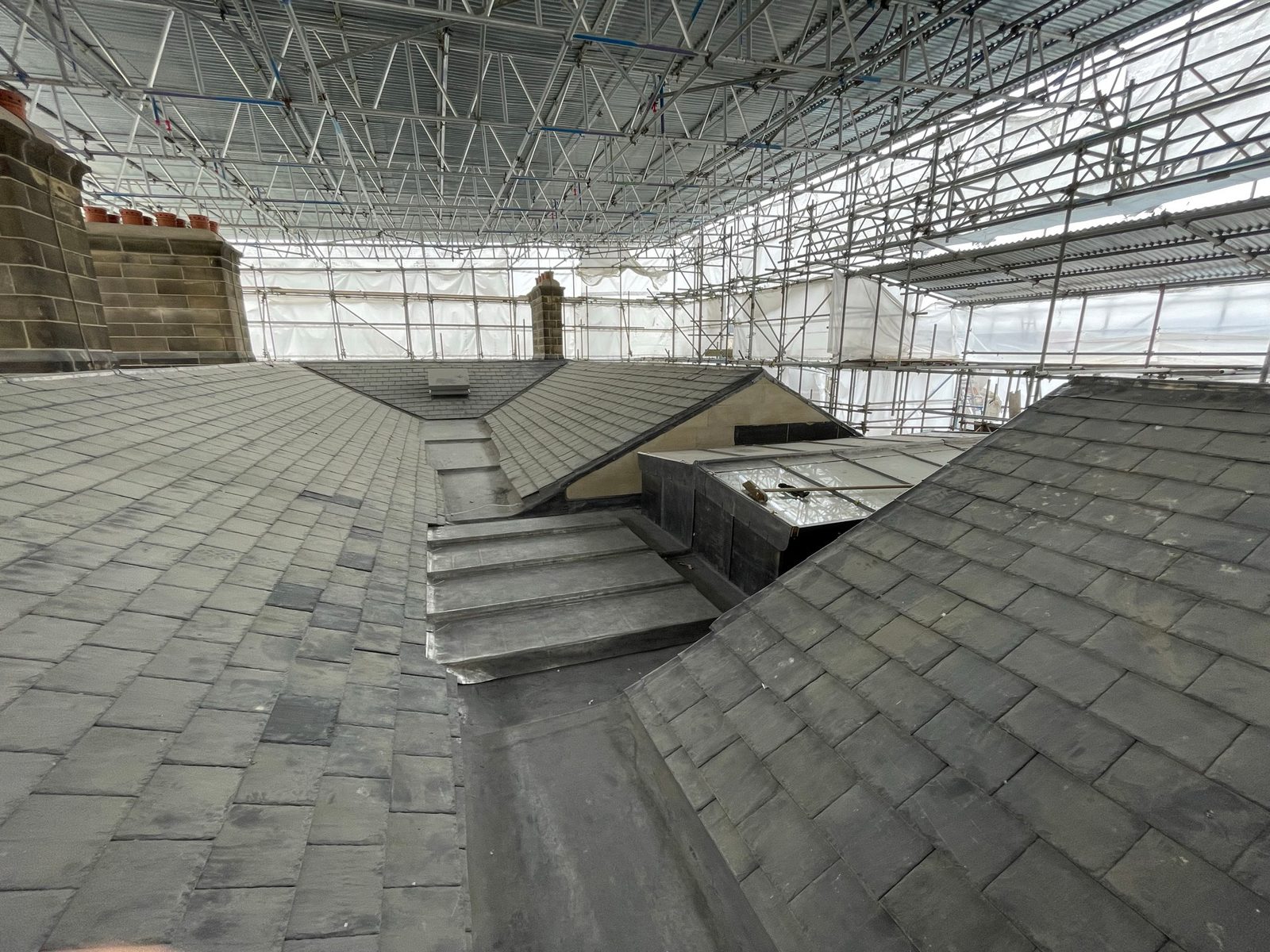Practice News
Building consultancy: retrofitting a route to net zero
by AHR
In the UK, 80% of buildings which will contribute to the UK net zero carbon target for 2050 already exist. It is therefore essential that we improve their energy efficiency and seek to include renewable energy sources.
As building consultants, our work is focused primarily on the improvement of existing buildings, providing spaces which enhance the experiences of our clients and occupants, through our refurbishment and remodelling projects.
Retrofit not only has the power to give a new lease of life to an existing building and extend its lifespan, but it is often more cost-effective than demolishing and reconstructing. It also offers the opportunity to simultaneously improve energy-efficiency and positively contribute to the government’s net carbon zero ambitions. As well as other significant community and sustainability benefits, which we take a look at below.
Providing renewable energy solution for tenants
The inclusion of sustainability elements in our residential projects is not only supporting longer term decarbonisation plans, but is also helping to address the fuel poverty crisis, a pressing concern for housing authorities and councils.
At our scheme with WDH, we improved the energy-efficiency of existing houses by retrofitting a range of renewable energy solutions, including photovoltaics and air source heat pumps.
Through early engagement with the residents, we ensured that they not only knew the benefits that these solutions would bring, but also how to use them effectively, whilst having minimal impact on the building footprint.
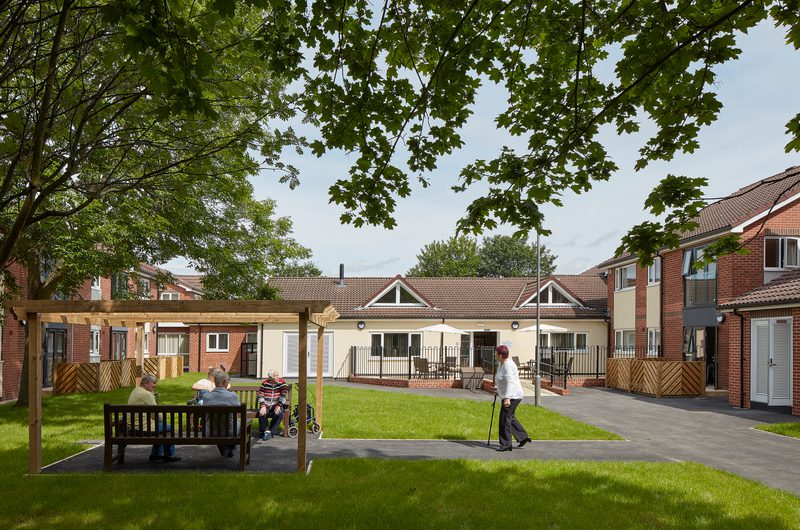
Preserving history and a sense of identity
Retrofitting also has the added benefit of conserving buildings which are important to communities and a place’s sense of identity.
For example, much of our recent work with Kirklees Council has concentrated around the historic buildings of the original 1800s Ramsden Estate in Huddersfield town centre. This includes The George Hotel, Estate Buildings and the Byram Arcade. These elaborate Victorian buildings form much of the character of the town and are well-known locally.
At the Grade II* listed George Hotel, we sensitively carried out vital structural and restoration repairs, dramatically extending the life of the building and, in turn, securing its future for generations to come.
The refurbishment and repair work to the roof has had a particular impact on increasing the building’s overall energy efficiency. Water ingress has been rectified and new leadwork and timber has been carefully blended with the original features to restore the roof and the support the prevention of heat loss.
Following advice from Historic England, we also installed lambswool insulation, which is not only less combustible than standard insulation, but due to its breathable nature, is able to handle fluctuating humidities without retaining water, in turn preventing any potential damp issues.
Lambswool’s resistance to absorb water also makes it less liable to ‘slumping,’ where hydrophilic insulation has a tendency to move (or ‘slump’) as it soaks up moisture, making it less efficient.
The original windows have been preserved and repaired, with bespoke vacuum glazing installed into specially rerouted, deeper rebates. While vacuum glazing contains no gas between the panes, like in modern double glazing, it provides the same, if not better in many cases, thermal efficiency and has contributed to improving the overall energy-efficiency of the historic building.
Despite our eventual success, achieving the restoration work to the windows presented some complex challenges to our team. In order to satisfy conservation guidance, we were required to use historic profile glass and replicate traditional barrel formed techniques, no longer in practice due to the use of mercury.
We commissioned bespoke Pilkington glass with a toughened inner layer and replica historic glass on the outer layer. This required carefully factoring in thermal differential between the two to prevent thermal fracturing i.e. breakage due to temperature differences.
Innovative sustainability through retrofit
To support long-term decarbonisation plans, we have supported a large number of schools and colleges incorporating sustainability features at their estates.
To assist a school in Telford in reducing their energy bills through the installation of solar panels, we reviewed detailed reports of their energy consumption data in relation to available sunlight hours. This revealed that the installation of batteries as part of this system would be necessary to effectively cover running costs in the future.
Therefore, to ensure that the new solar panel system adequately met the needs of the school throughout the year, the project involved the installation of PV panels and Tesla Powerwall batteries to an allocated 900m² roof space on the main school block.
The Powerwall battery covers the school’s energy load during non-daylight hours by storing excess solar energy generated during the day. This energy is then available to use as required and is protected from power outages.
We have installed air source heat pumps and carried out reroofing works at various schools and colleges, enhancing their sustainability and reducing their energy consumption and carbon footprint dramatically.
We have also successfully supported schools in securing Public Sector Decarbonisation funding through Salix.
We are committed to promoting sustainability throughout our projects and working practices. By delivering places and spaces that are unique, healthy, and inspiring additions to the built environment, we aim to leave the world better than we found it.
Discover more about how we’re achieving sustainability through retrofit on our perspectives page.
Contact our building consultancy team to talk to us about how we can support the decarbonisation plans for your estate and support you in reducing your carbon footprint.
Posted on:
Oct 15th 2024
Topics:
Share on
Related Projects

The George Hotel
Our sensitive approach to preserving the heritage of one of Huddersfield’s most historically and culturally important buildings; bringing it back to life with essential fabric repairs.

Notre Dame Catholic Sixth Form College
Expansion of the college’s Post-16 capacity through the introduction of a new teaching block, aligning with their broader campus development ambitions.

St Mary's Caritas Centre
In line with St Mary’s Catholic Church’s aspirations to create a new religious community centre for the residents of Crewe, fundraising for a new-build Parish Centre began back in 2011.
